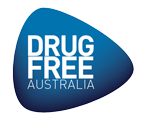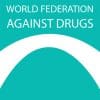Eyewitness Stories
The Police Files
The Unseen Impact on Drugs in our Society
All Files Written by Noel Ashby APM, Former Assistant Commissioner Victoria Police
These accounts provide an insight of the impact of drugs in our society. It is the second iteration, and like its predecessor, outlines how drugs have impacted on the lives of ordinary people in our society.
These accounts are real accounts.
They are diverse in nature in how each event impacted upon ordinary Victorians. Like the previous paper, these people of our society are our neighbours, many are friends, some tragically are family and in each account those hurt and damaged by drug use never believed this could happen to them. In the views of the majority, these catastrophic events only ever happened to others.
These were accounts reported in the media about other people, in other society, not in our world. Largely, they were interest stories to be read on-line, heard briefly on the evening news, but moreover, they were about others who were largely invisible to society.
Most people link drugs with illicit and dirty street crime. These aspects are critical in the drug tragedy in Victoria (and Australia and indeed the world), but they are not anywhere near the whole impact of drug use in our society. One can only imagine the potential dysfunction and hurt in and to our society should drugs such as those in the following accounts be openly and legally available.
The impact of drugs on ordinary people in our society
Her name was Shelley..
Shelley’s story is what we may regard as representative of the ‘sleaze factor’ in drug use and law enforcement. Shelley appeared suddenly, as most do on the streets of St. Kilda, a few short years ago.
She was young, tall, smart, attractive, and not someone of low intellect.
A private school background and parents not without financial means and status. She had worked on a prominent television show as a reporter on Melbourne TV and her future seemed scripted for success and prominence to the society.
Shelley slid accidentally into Heroin. The use of marijuana and so-called ‘soft’ drugs was her entrée. Harder drugs followed and the terrifying grip of addiction to Diacetylmorphine, or simply Heroin. The addiction snuck up on her. She could always control her increasing drug use and mask her behaviour, when under the spell of the drug and its cravings.
Her employers noticed though and dispensed with her services. It was too big a risk for a major TV network to have a risk factor like Shelley in their midst.
Suddenly her years of study, private school background and her parents social standing counted for nothing in the society.
How does a young woman in her early 20’s support a $2,000 plus a day heroin habit?
Prostitution beckoned in ‘respectable’ massage parlours and licensed brothels. But, as track-marks and scarring on arms and legs, bruises become entrenched, the legal brothels no longer want you in or near their premises or their customers. The same psyche, as that demonstrated by her Melbourne television employers emerged. She was a liability to their business. Shelley was at the bottom of the tree in the society.
The sleazy back streets of inner-Melbourne suburbs became her home for a few months and having every imaginable form of sex in filthy tenements reeking of the most rancid and offensive odours was her lot. Stealing became a necessity and from anyone. Her parents had abandoned her. Her father looked us in the eye and said at the police station one night after she was found over-dosed in a laneway that she was dead to him and her mother.
I met her many times, on the first occasion when I was undercover in a drug den. I was playing a video game to fit-in, while we were waiting for a drug drop to occur, and we had our eye on much larger fish.
Shelley tried to involve me to using a stolen credit card she had just stolen from a ‘trick’ of hers.
In other words, a customer.
She was arrested by others screening the den for our safety in our society (there were three of us) and I later asked her back at the police station, why she chose me out of all those frequenting the den. She said I looked the worst person in the joint, using a highly descriptive adjective.
Shelley was bailed to appear in court.
Two weeks later, Shelley died in a laneway, face down, water from the laneway pooling around her hair and body with other detritus such as cigarette buts and human waste as her final companions. Shelley had used a ‘bad-line of smack.’
In the 18 months working undercover in these areas, Shelley was the ninth of fourteen others of all genders, to die like this. Of course, her death was unreported. And, of course, her parents were relieved she had died.
‘ Two weeks later, Shelley died in a laneway, face down, water from the laneway pooling around her hair and body with other detritus such as cigarette butts and human waste as her final companions. Shelley had used a bad-line of smack’.
The story of Shelley a Heroin user of 6 years
Rhiannon’s Second Boyfriend
Rhiannon lives with her mum and dad and her three siblings in an outer Melbourne southern suburb.
Rhiannon was seventeen when she met her second boyfriend through friends at her school. Her parents, Rhonda, and Victor were not sure. They thought she was too young to be going out with a boy a month or so shy of 20.
Nevertheless, peer pressure applied, the word trust bandied about, and the fact that Rhiannon had been a good girl. She had never bought pressure to her parents, was good at school and her friends seemed sensible.
After a few months, Rhiannon started to change. Her reliability disappeared, her caring attitude for others seemed like it was slackening. Also, her skin developed a pallid greyish tone, and her eyes lost their brightness. She became argumentative and just difficult to deal with.
A few months before, everyone loved being around her, now friends started to avoid her and lose contact with her.
Rhonda noticed it first. Her purse was suddenly short of money. Rhonda and Victor were small business owners and disposable cash very much a luxury. One evening a few weeks later, Rhiannon did not come home.
Victor scoured her former friends and associates all night and the next day without luck.
Rhonda and Victor reported Rhiannon missing after two days. Missing Persons Reports, police questions, and innumerable calls to Melbourne support agencies became their norm.
A few days later their bank called them. Their mortgage payment had defaulted, and their business and private bank accounts had been emptied. $32,000 from their business account had been drawn out by Rhonda a day or so before and $9,000 from their joint private account had been also purportedly drawn out again by Rhonda. Victor could not focus on their business, he could not work, he could not think logically as these multiple traumas engulfed the family.
Rhiannon’s siblings had not really noticed anything about her before she left home, other than she was a “a bit weird lately.”
Townsville Police in Queensland arrested Rhiannon with her boyfriend that week. They had been involved in crime, serious crime, which included breaking into other’s homes while they were home and threatening to kill them, if they did not produce money. Rhiannon admitted stealing from her parents, admitted selling herself on The Strand in Townsville, for any form of sexual act. How else could she support her Ice addiction?
Ice was the first drug she used, and she was introduced to Ice by her boyfriend, who had been an ‘Ice Head’ for over a year.
Rhiannon went back home, a lucky survivor of a brutal addiction and accepted an offer to give evidence in court against her ex-boyfriend and his mates, all involved in dealing in, trafficking in and using Ice. Rhiannon is under extensive rehabilitation treatment.
So is her father, Victor, who when he learned of Rhiannon’s depths of addiction and the acts she performed and of the things she did to others, it was too much for him emotionally and mentally. He was saved from suicide by Victorian police, who used a taser device to disarm him as he was threatening suicide. Victor spent a spell as a committed in-patient in a Melbourne Psychiatric facility. Victor is a Pastor in his local church. He is returning to their church and the pulpit in the future.
Ice was the first drug she used, and she was introduced to Ice by her boyfriend, who had been an ‘Ice Head’ for over a year.
Joshua and Bianca.
Josh and Bee met at a private school in Melbourne’s north-eastern suburbs. Both passed VCE well, Josh particularly so, and he was admitted to a top Melbourne University to study law and economics. Bee started studying nursing at another Melbourne University.
Josh and Bee first met at school.
A private school in Melbourne’s leafy north-eastern suburbs. Their parents both stretched their finances to give all their children the best start in life that included a commitment to private school education, further activity that included various sports on the weekend for Josh and ballet for Bee.
They qualified at VCE and by that time had been together for over two years.
Their first year at university, different universities, went as the family and they had become to expect. An easy transition into higher education and improving grades as they grappled with the difference of higher education and secondary education.
There was more responsibility for themselves, for their study regime, for their recreational activity and involvement, each other, and themselves, and socially.
Their parents were normal middle-class people. Bee’s dad owned a trade small business and was highly successful. He employed eight tradespeople people full time, ran a series of trucks, and had a business office in a business centre with other staff. Her mum was a home mum.
Josh’s dad was an accountant and his mum a manager in a large retail chain and worked in a north-eastern major retail outlet. Brothers and sister’s abounded in both close family units. Josh’s folks regularly attended church, hence their choice of a private school for Josh that had a strong Christian religious ethic. Josh’s mum and dad wanted him, and their other kids, to make their own choices about religion.
In semester two, second year of his law and economics degree, a university friend held a gathering at his rented student accommodation in Carlton North. Josh picked up Bee from her home, spoke in the usual friendly manner with Bee’s parents, and they left for the gathering of university friends. Friday night gatherings were popular, end of week, start of the weekend, and a time that Josh and Bee had together. Josh and Bee had seen drugs.
Everyone had seen drugs at school, university and in their local network of friends.
They both could have obtained drugs easily. They knew who to contact, knew the cost and knew many friends used drugs. Many types of drugs that weren’t dangerous. After all, how could recreational drugs be dangerous. And, perhaps cynically, anyone using any drug casually, and not through an addiction, were only recreational users. But to date, Josh and Bee hadn’t used drugs.
The gathering was typical, young people, the leaders of tomorrow, spoke about many things typical of their generation. They drank a little alcohol; Josh was careful as he drove and needed his driver’s licence.
Damon was a close friend. Josh met Damon at university, and they shared legal and class notes, discussed upcoming tutorials and more importantly examinations which were taxing in the law faculty. They knew the standards were high and only the best quickly got work offers as first year solicitor’s after finally being admitted to practice in the Supreme Court of Victoria.
Damon spoke in a low voice and slipped Josh a small square of blotting paper. This wasn’t a tablet, no syringe, no snorting and assured Josh this was safer than the Crown Lager he had finished. And it was not addictive.
Josh was careful, two Crownies for the evening between 7.00PM and 11.00PM, eat something along the way, drink lots of water and at 2.00AM when he they usually left, he would always register zero on any alcohol test.
PCP, Damon assured Josh, was cool.
Absorb it on your tongue and you will sit outside your body and just feel fantastic. Even better, stay the night if you’re not certain. PCP was Psilocybin. It is a hallucinogenic substance that puts a user in a dissociative state of mind.
At around 3.00AM Bee wanted to leave. She had practicum examinations in the coming week and wanted Sunday to prepare and then go to Josh’s home for Sunday dinner. Josh knew he shouldn’t drive; his mind was swimming and friends later told police he was grinning non-stop from around 1.00AM. Still, he was okay. He’d just have to be careful. Go the back roads home and go slow and he and Bee would be fine.
Josh woke in hospital.
He told police he was driving home and felt like he was flying a plane. He couldn’t remember anything else. How did he come to be in hospital, why was he badly injured, why did he have tubes and drips in his arms?
The witness in a car following Josh and Bee said Josh’s Mitsubishi Magna was travelling at around 115 kph in a 60 kph zone and running through round-a-abouts and hitting the concrete barriers at wheel height of two round-a-bouts before the Magna swerved onto the nature strip and collided with a gumtree that had a huge trunk. The car jerked upwards, the back wheels lifting off the roadway, dust, steam, and debris flying in what the witness described was an explosion.
The police scientific forensic crash reconstruction expert found Josh had been travelling at 105 kph when his car left the road and collided with the gumtree at 85 kph. The Forensic Physician opined that the analysis of Josh’s blood sample showed the active constituent of PSP in Josh’s blood would have had a severe detrimental impact on his motor skills and rendered his ability to safely drive a motor car impossible. The crash was a massive impact, even for the bleeding off of speed as the car careered off the road.
Strangely, Bee didn’t look seriously injured. The witness in the car following said she looked at him with terrified and pleading eyes. She then made a strange gurgling sound and just stopped breathing. Her eyes remained staring but fixed, still far too early for post-mortem clouding.
Josh was sentenced to be imprisoned for 6 years with a minimum 4 years for killing Bee by his culpable driving. Since his release from prison, he continues to visit Bee’s grave on the last Sunday of each month.
Bee’s parents have yet to change her bedroom. Her room still has her teddies on her bed and her nursing study books on her neat desk. Bee’s father still cannot speak to Josh. For all of them, the trauma continues more than a decade after the criminal actions of Josh killed Bee.



